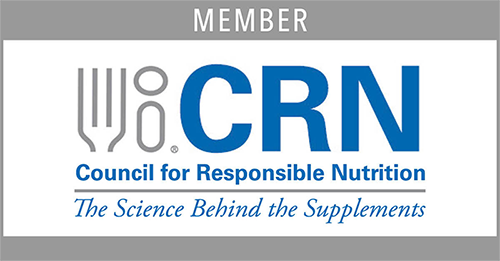What is It?*
Source Type: Fat-soluble vitamin
Source(s):
- Preformed vitamin A – found naturally in animal foods (liver, fish oil, dairy) and is often referred to as “retinol.” It is the most active and readily absorbed form of vitamin A.
- Provitamin A carotenoids – inactive form found naturally in plant foods (dark-green leafy vegetables, orange fruits/vegetables) and is converted to active vitamin A in the body. Beta-carotene is the most common provitamin A carotenoid found in foods and dietary supplements.
- Chemically synthesized in labs
Vitamin A is a fat-soluble nutrient that includes a group of compounds that affect bone, vision, growth, reproduction, cell division, and healthy surface linings of the respiratory tract and mucous membranes. Vitamin A also has antioxidant properties.
Benefits*
Vitamin A is necessary for maintaining healthy vision, particularly in low-light conditions. It is also essential for immune health, bone growth, proper wound healing, reproduction, and fertility.
Vitamin A found in topical skin products is known for promoting healthy skin. Provitamin A carotenoids, such as beta-carotene, have antioxidant properties that help protect cells from damage caused by free radicals.
Effectiveness*
Vitamin A is highly effective for maintaining good vision. A deficiency in vitamin A can lead to night blindness, or in severe cases, total blindness.
Studies show that vitamin A is associated with higher bone mineral density and lower fracture risks.
Numerous studies show the benefits of vitamin A during pregnancy for supporting fetal development.
Vitamin A is effective for immune health by stimulating the production of white blood cells and by strengthening mucous membranes in the digestive and reproductive tract.
Vitamin A in topical skincare products has been shown to be effective in treating skin disorders and helping to minimize the appearance of fine lines and wrinkles.
Risks*
Excessive intake of vitamin A, either from supplements or certain foods, can lead to vitamin A toxicity, also known as hypervitaminosis A. Symptoms range from nausea and dizziness to birth defects in pregnant women and bone problems. Acute toxicity can cause immediate discomfort, while chronic toxicity may result in skin issues, liver damage, and interference with other fat-soluble vitamins.
Several studies have shown that smokers, former smokers, and people exposed to asbestos who take high-dose beta-carotene supplements have a higher risk of lung cancer and death.
To avoid these risks, it’s best to obtain vitamin A from a balanced diet that includes a variety of foods, rather than relying on high-dose supplements or excessive consumption of animal-based sources of vitamin A.



